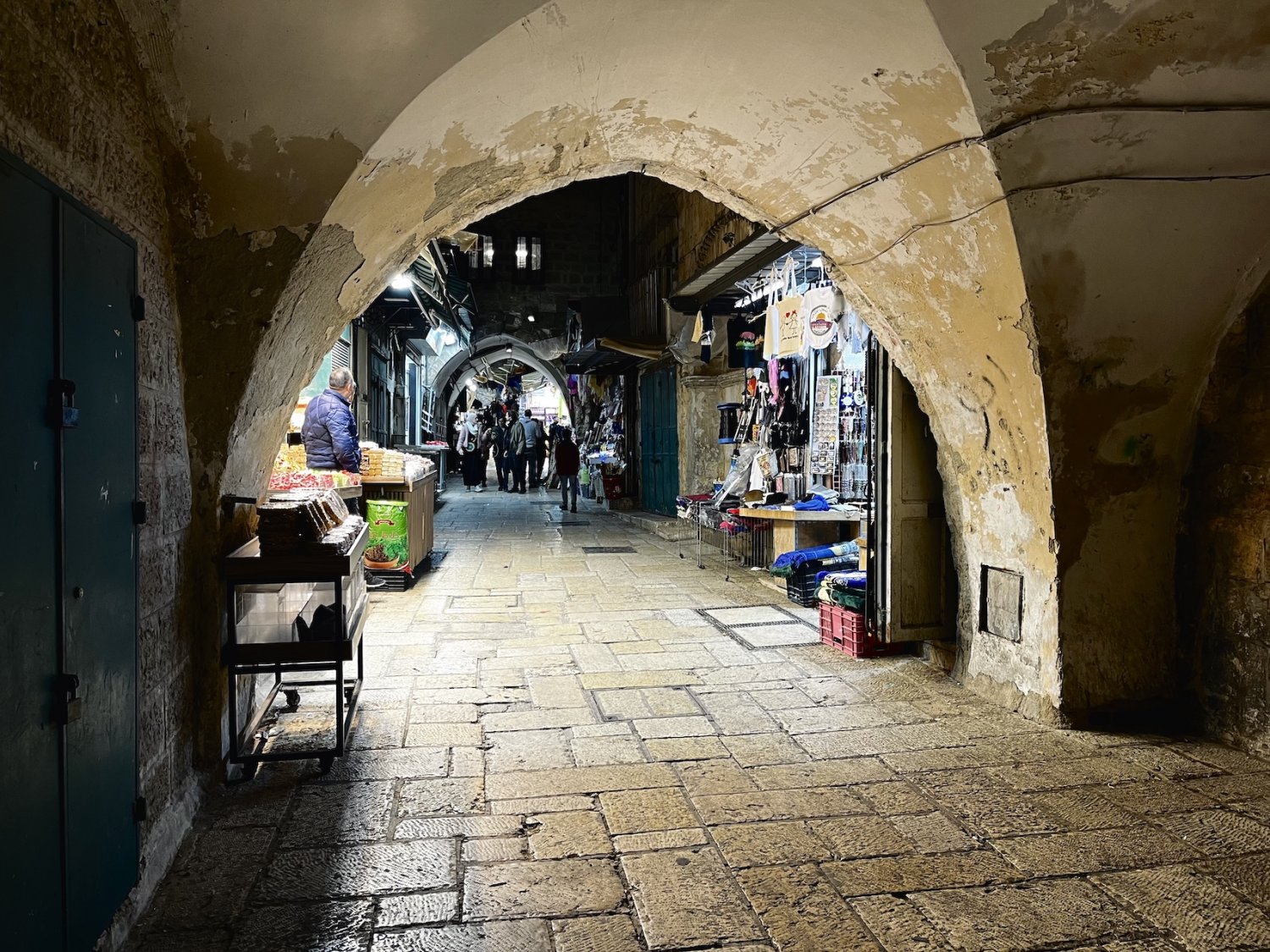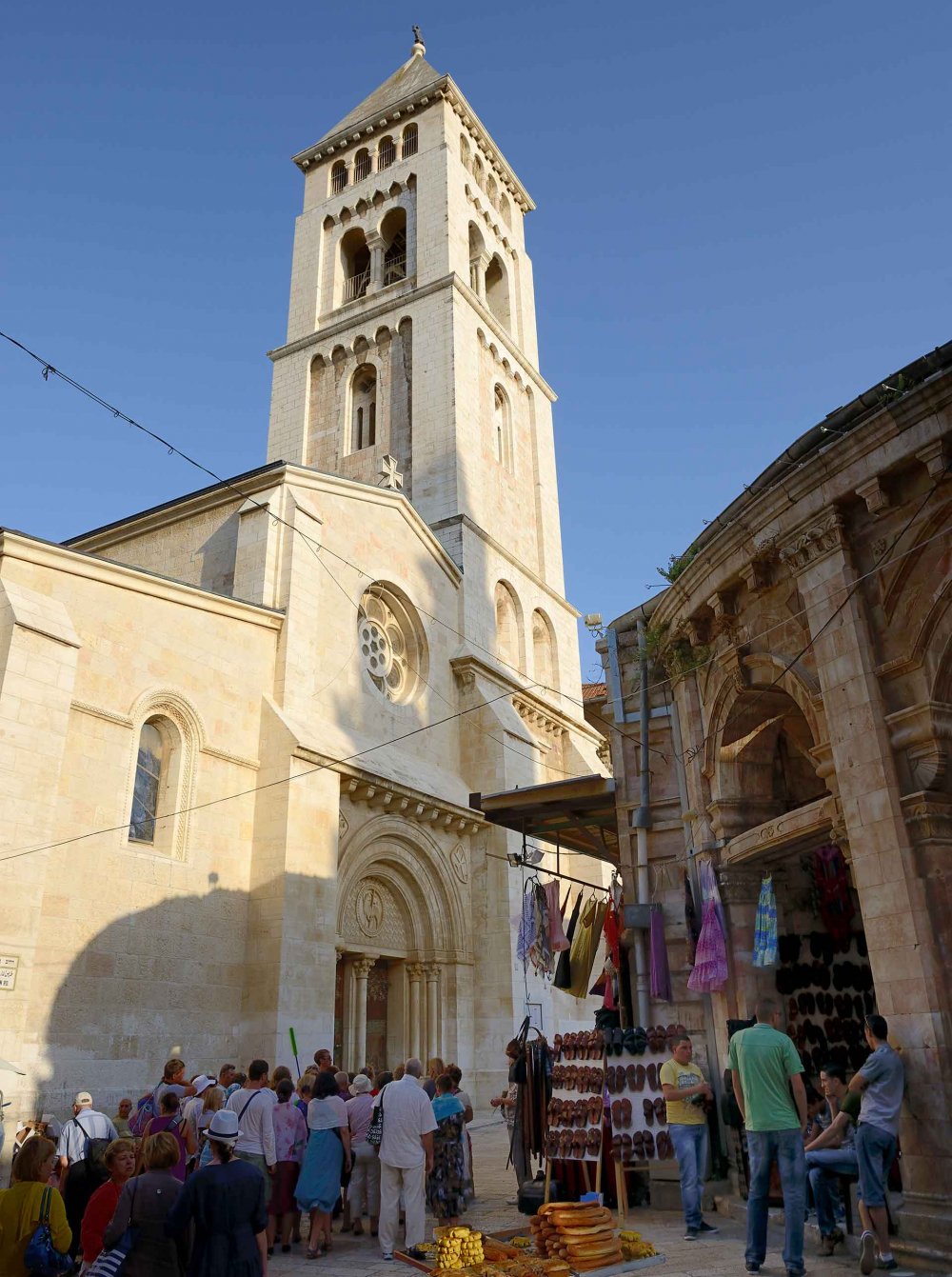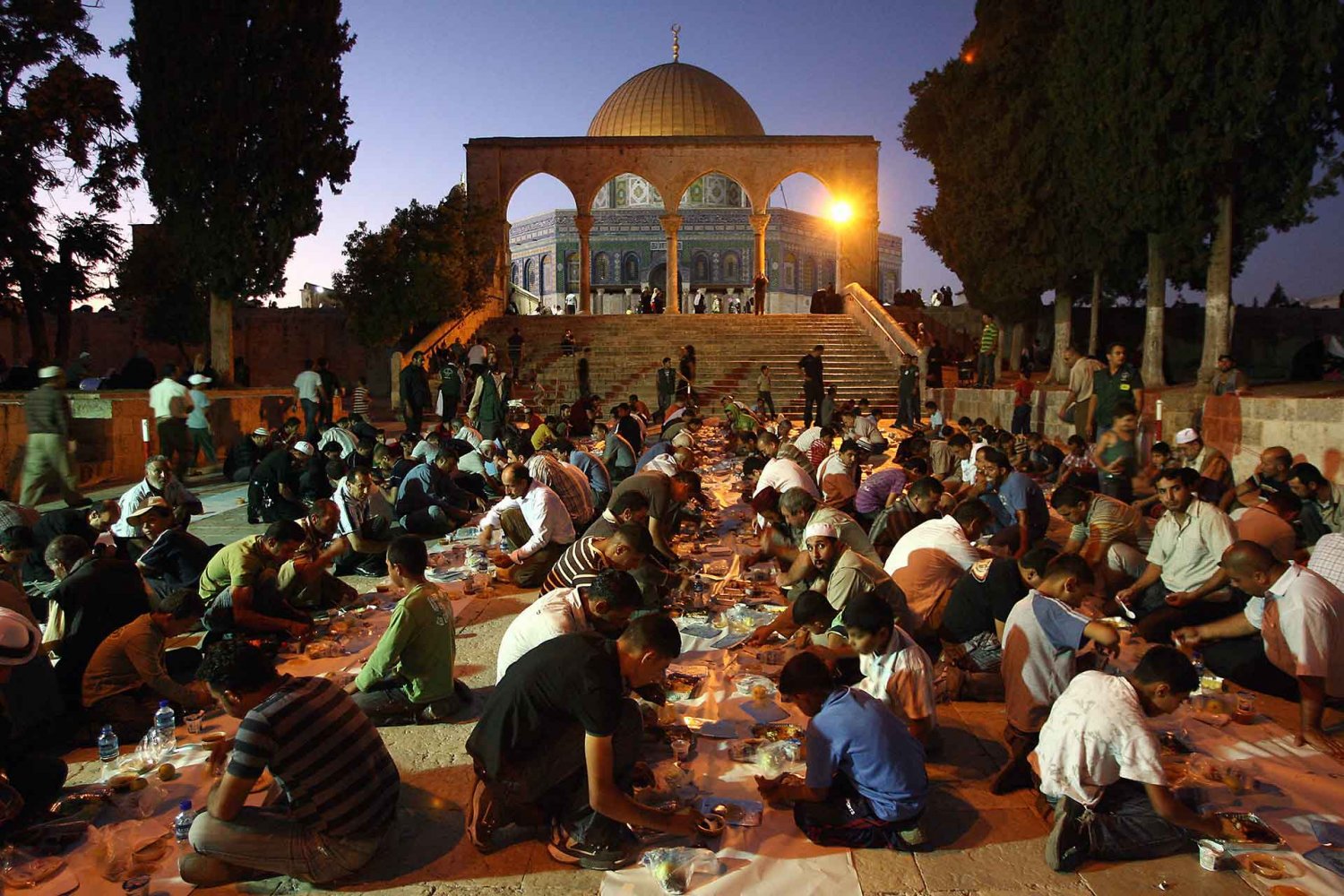Walking the alleys of the Old City of Jerusalem in the last days of the holy month of Ramadan, it becomes clear that spirituality is not confined to one faith. The Easter holiday taking place at the same time shows that Jerusalem is a place that unites and does not divide, a place where the human being is the most important. If it were not for the militarized Israeli police imposed on the city and its alleys, I would have said that this is a city from another world.
Near the Church of the Holy Sepulchre, you see Lutheran Bishop Munib Younan with a permanent smile on his face. A dignified figure, he stands tall in front of a shop in the Old City in the Dabbagha Market (Souk al-Dabbagha), exchanging conversations with his friend Abu Muhammad, 70, owner of the shop, congratulating him on the holy month of Ramadan, and inviting him to break the fast with him.



